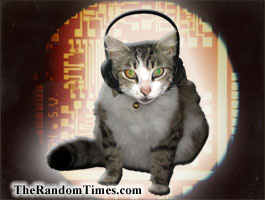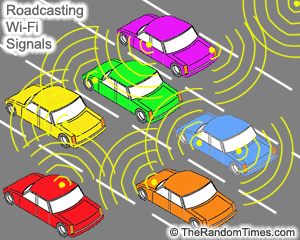
(Internet Broadcasting) The cat's out of the bag...Over the last few months I've noticed that I am listening to an increasing number of Internet broadcasts and searching web-based multimedia sites for entertainment. I have become more selective in the programming that I view or listen to and I now actively seek out specific content that interests me.So why not just pop in a CD or watch a DVD?Though we often like to enjoy things on a personal level, we are also very communal. There are times when we all want to enjoy a bit of communal participation -- even remotely -- knowing that one is not the only one listening to, or watching a particular selection. It is the strange reason that many of us will watch a movie on regular television (with commercials) despite the fact that the DVD is sitting on the shelf next to the TV... Even though we're not sitting in the same room with others who are watching that movie, we perhaps subconsciously enjoy the fact that others are watching exactly what we are watching at the same time. It may sound bizarre but for some reason the networks are able to sell expensive commercial time to sponsor those movies despite the fact that the DVD version is readily available."The communal experience..." The communal experience on the Internet is really no different. We want to participate, even remotely -- in a communal event and we really want something to satisfy our taste at that specific time. Even though Internet broadcasting is not very expensive the broadcasters must have some kind of audience in order to justify their continuing service -- typical webcasts can support small numbers of simultaneous listeners or extremely significant numbers. For the listener the number of other listeners is not really important -- I believe the actual driving force is our subconscious desire to have a common experience -- just the belief that someone else, somewhere on the planet may be experiencing the same thing at the same time is enough. I won't bother to go into the other types of "entertaining" webcasts that may allow variations of that communal theory...
The communal experience on the Internet is really no different. We want to participate, even remotely -- in a communal event and we really want something to satisfy our taste at that specific time. Even though Internet broadcasting is not very expensive the broadcasters must have some kind of audience in order to justify their continuing service -- typical webcasts can support small numbers of simultaneous listeners or extremely significant numbers. For the listener the number of other listeners is not really important -- I believe the actual driving force is our subconscious desire to have a common experience -- just the belief that someone else, somewhere on the planet may be experiencing the same thing at the same time is enough. I won't bother to go into the other types of "entertaining" webcasts that may allow variations of that communal theory...
"...someone else, somewhere on the planet may be experiencing the same thing at the same time..." Podcasting - The personal experienceAnother phenomenon that has also picked up in popularity is "podcasting" -- which utilizes the same file types as"The regular folks..."So who are the broadcasters? There are two main groups -- one group is the typical traditional broadcast media who through the Internet are satisfying audiences outside of their physical broadcast area and the other and more interesting group, I like to call the "regular folks." The regular folks group includes incredibly talented individuals who may or may not be able to fit into the corporately dominated traditional broadcast media -- and yes there are also many "wanna-bees" and many less talented who are also part of this group. The methods of broadcasting are progressively becoming simpler. A broadcaster no longer needs to have a technical background. As a result a broad spectrum of artists, writers and new thinkers has been able to enter the i-broadcast world on their own with little or no funding.
i-Broadcasting will simply become "broadcasting." Wireless connectivity, more commonly known as "Wi-fi," has become a staple. Almost every device on the market can be wi-fi enabled. And with the proliferation of ever-growing public and private Wi-fi networks, as well as, the emergence of even farther reaching wireless technologies, such as "WIMAX" it is only a matter of time before all portable entertainment devices will be wi-fi or WIMAX enabled. In 2002, I participated in the development of Long Beach, California's public Hot Zone Wi-fi District. Covering several blocks of the city's trendy Pine Avenue in downtown, the prototype network provides any Wi-fi enabled device Internet connectivity. It facilitates seamless transition from node to node (AP to AP), so broadcasts can stream without interruption. The model has been adapted, emulated and refined for use in a number of other municipalities throughout the world.
|


 Is it too good to be true?
Is it too good to be true?